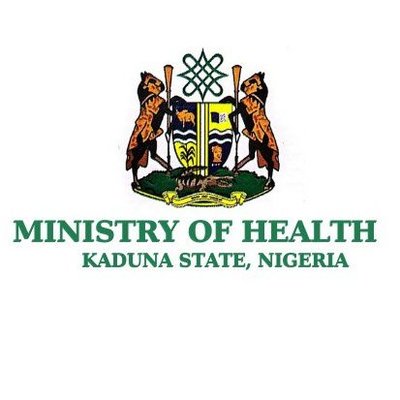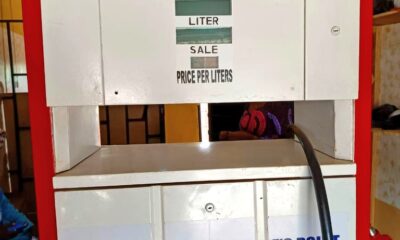Health
Beware of contaminated syrup — NAFDAC warns Nigerians
The National Agency for Food and Drug Administration and Control (NAFDAC)
has warned Nigerians to beware of contaminated syrups allegedly going around in World Health Organisation (WHO) regions.
The Director-General of the agency, Prof. Mojisola Adeyeye made this known in a statement titled public alert No. 037/2023 in Abuja on Monday.
The agency listed the WHO regions to include: America, Eastern Mediterranean, South-East Asia and Western Pacific.
It stated that the five oral liquid dosage forms (syrup and suspension) were also detected in the Maldives and Pakistan and that some of the affected products have also been detected in Belize, Fiji and Lao People’s Democratic Republic.
The agency listed the sysrups as: ALERGO Syrup, EMIDONE Suspension, MUCORID Syrup, ULCOFIN Suspension and ZINCELL Syrup, adding that “a total of 23 batches of the products are affected and the stated manufacturer is PHARMIX LABORATORIES (PVT.) LTD (Pakistan).
“In November 2023, samples of five different batches of ALERGO syrup were screened for non-compliance by the quality control laboratory of the Maldives Food and Drug Authority (MFDA).
“This is in accordance with the Thin Layer Chromatography (TLC) test for Diethylene Glycol and Ethylene Glycol for inclusion in the International Pharmacopoeia.
“The routine screening detected potentially unacceptable amounts of diethylene glycol and ethylene glycol as contaminants.
“Laboratory testing conducted by the Therapeutic Goods Administration of Australia (TGA) confirmed that all five batches were contaminated with ethylene glycol at levels ranging from 0.62 to 0.82 percent w/w relative to the accepted limit of not more than 0.10 percent w/w.
“A follow-on inspection of PHARMIX LABORATORIES (PVT.) LTD was conducted by the Drug Regulatory Authority of Pakistan (DRAP).
“The DRAP review of the manufacturing facility and manufacturing records suggested that diethylene glycol/ethylene glycol as contaminants may be present in other products and batches manufactured by PHARMIX LABORATORIES (PVT.) LTD.
“The safety and quality of these products can, therefore, not be guaranteed,” Adeyeye quoted DRAP as saying.
The NAFDAC boss said that as a precautionary measure, DRAP had instructed PHARMIX LABORATORIES to stop production of all oral liquid dosage medicines and issued a Recall Alert for the five different oral dosages manufactured by the company.
She disclosed that Diethylene Glycol and Ethylene Glycol are toxic to humans when consumed and can prove fatal.
According to her, toxic effects can include abdominal pain, vomiting, diarrhoea, inability to pass urine, headache, altered mental state, and acute kidney injury which may lead to death.
The NAFDAC boss stated that manufacturers of liquid dosage forms, especially syrups that contain excipients, are at risk of contamination with EG/DEG such as glycol, sorbitol, and/or glycerin/glycerol.
Adeyeye added that the substandard products referenced in the alert are unsafe and that their use, especially in children, may result in serious injury or death.
She stated that although the products are not registered by NAFDAC, they may have been distributed through formal and informal markets to other countries or regions, including Nigeria.
She implored importers, distributors, retailers and consumers to exercise caution and increase vigilance within the supply chain to avoid the importation, distribution, sale and use of substandard cough syrups.
She said all medical products must be obtained from authorised/licensed suppliers, adding that products’ authenticity and physical condition should be carefully checked when buying.
The director-general advised the public, who have the listed products not to sell or use the products, but submit stock to the nearest NAFDAC office.
She urged those who may have used the products to seek immediate medical advice from qualified healthcare professionals.
She also advised healthcare professionals and consumers to report any suspicion of adverse drug reactions, or substandard and falsified medicines to the nearest NAFDAC office on 0800-162-3322 or via email: [email protected].
She encouraged healthcare professionals and patients to report adverse or side effects related to the use of the medicinal product to the nearest NAFDAC office, or through the use of E-reporting platforms available on the NAFDAC website www.nafdac.gov.ng or via the Med- safety application available for download and IOS stores or via e-mail on [email protected]
Health
KDSG trains 180 Red Cross volunteers on Lassa Fever intervention


The Kaduna State Ministry of Health has begun a three-day training for 180 Red Cross volunteers on Lassa fever intervention.
The training, which is facilitated by the ministry and funded by the Red Cross, is meant to equip the volunteers selected from 5 LGAs in the state with necessary skills.
The volunteers were drawn from Zaria, Igabi, Kaduna South, Kaduna North and Chikun Divisions.
The State Epidemiologist, Dr Jeremiah Dikwu, said the volunteers were trained with the knowledge needed to massively intervene during cases of Lassa fever in the state.
He said that the intervention would include Risk Communication and Active Case Search, Psychological First Aid, Rodent Control and Hygiene Promotion for the next 3 months.
Dikwu said the training started with 30 volunteers on surveillance and would end with the training of 150 volunteers on Risk Communication and Community Engagement .
According to him, Lassa fever is a viral hemorrhagic fever transmitted by rats.
He added that Lassa fever has been known since the 1950s, but the virus was not identified until 1969, when two missionary nurses died from it in the town of Lassa in Nigeria.
Dikwu added that Lassa fever was caused by a single stranded RNA virus and disseminated systemic primary viral infection.
“The main feature of fatal illness is impaired or delayed cellular immunity leading to fulminant viraemia,” he said
The epidemiologist said that Lassa fever presented symptoms and signs indistinguishable from those of febrile illnesses such as malaria and other viral hemorrhagic fevers such as Ebola.
“It is difficult to diagnose clinically but should be suspected in patients with fever (e”38°C) not responding adequately to antimalarial and antibiotic drugs.
“The most useful clinical predictors of Lassa fever are fever, pharyngitis, retrosternal pain, and proteinuria for diagnosis; and fever, sore throat, and vomiting for outcome,” Dikwu said.
He said that Ribavirin and general support were needed.
“Ribavirin is almost twice as effective when given intravenously as when taken orally, and if given within six days of the start of illness it may reduce deaths by 90 percent.
“Dehydration, oedema, hypotension, and poor renal function are common; fluid replacement or the use of blood transfusion requires careful monitoring,” he said.
Dikwu said the volunteers would be carrying out Risk communication and Community engagement, Active Case Search, Psychological First Aid, Rodent Control and Hygiene Promotion
Health
Assembly passes Kano Pre-Marital Health Screening Bill


Kano State House of Assembly has passed a bill for a law to compel intending couples to undergo HIV, hepatitis and sickle cell anaemia screening before marriage.
The passage followed deliberations in the Committee of the Whole House during plenary session,
presided over by the Speaker, Ismail Falgore on Monday in Kano.
After deliberations, the lawmakers approved the 3rd reading of the bill, read by the Deputy Clerk, Alhaji Nasiru Magaji.
Shortly after passage of the bill, the Majority Leader of the house, Lawan Hussein (NNPP-Dala), stated that “any person
intending to marry shall first submit self for medical examinations.”
He said the bill was considered and passed after the 3rd reading, following various legislative processes.
The leader further said that the bill was passed because the state had been battling with different health issues, including
HIV because people go into marriages without medical screening.
He said that the bill, if signed into law, would save many lives and curb the spread of life-threatening diseases.
“The bill will safeguard the health of citizens by institutionalising pre-marital testing to check the spread of diseases
like hepatitis, HIV and sickle cell anaemia,” he added.
Health
WHO to begin vaccination against Human Papilloma Virus May 27 in Kogi


The World Health Organisation (WHO), says it plans to commence vaccination against Human Papilloma Virus (HPV) on May 27 in Kogi.
The state’s Team Lead of WHO, Dr Muktar Toyosi, said this when he led his team on an advocacy visit to the State Council of the Nigeria Union of Journalists (NUJ) on Wednesday in Lokoja.
Toyosi said that the vaccination was meant for girl child of between the age nine and 14.
He said the ongoing sensitisation was to keep the people informed, and educate them on the vaccination of their children to protect them against cervical cancer in future.
”Kogi falls within the second phase of the programme. We are soliciting for the cooperation of the media in educating the people of the state on the HPV vaccination.
“There need for girls child across the state to take the vaccination to safeguard their future.
“Although the vaccine was initially scarce and difficult to get, the good news now is that it has been made available by the government,” Toyosi said.
Also speaking, the State Technical Assistant for WHO, Dr Ahmed Attah, said that the HPV mostly affect women, adding that the vaccination remained a preventive measure against the disease.
Attah, a former state Chairman of the Nigeria Medical Association (NMA) and a former Chief Medical Director (CMD), Kogi Specialist Hospital (KSSH) Lokoja, urged parents and guardians to avail their children of the vaccination to justify government’s investment.
In his response, the Kogi NUJ Chairman, Mr Seidu Ademu, described the health sector as very critical, stressing that the vaccination was a right step in the right direction.
Ademu promised a robust partnership with WHO to enable the team to achieve its set goals.
He stressed the need to inform, educate and sensitise the general public on the need to embrace the vaccine by ensuring that girls within the age range were vaccinated.
-
capital market2 years ago
Rt.briscoe, FBNH, Others halts negative performance of stock market
-
Finance3 months ago
Court orders Sen. Victor Umeh to repay N136m bank debt to AMCON
-



 Abuja Update2 months ago
Abuja Update2 months agoUNDP, FG partnership needed to achieve inclusion, equity- Minister
-
Abuja Update1 month ago
Banks drive stock market performance with N147bn gain
-



 Business1 week ago
Business1 week agoTingo Group unveils Tingo Electric, Tingo Cola drink at Lagos launch
-



 Health2 weeks ago
Health2 weeks agoCapacity training will reduce migration of health workers- NPHCDA
-
News4 months ago
Oil thieves sponsoring malicious media campaign against Navy – Spokesman
-



 Infotech1 month ago
Infotech1 month agoWorld Backup Day: NITDA urges Nigerians to ensure backup of data














